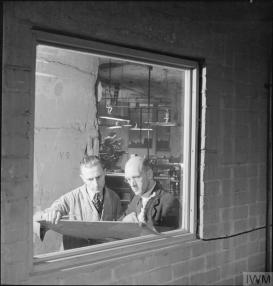During and immediately after the Second World War, psy-experts sought to remake relations between Britons. While historical attention has been drawn to psychological interventions in the intimate, familial sphere, I show that psy-experts also sought to transform how Britons related to each other at work. Work was imagined as a key site of democratic education and socialization; furthermore, both economic productivity and harmonious industrial relations were crucial if Britain was to navigate the Cold War climate.
This project tracks the attempt by various psychoanalysts, psychiatrists and social scientists to create authoritative knowledge of the workplace, with the hope of securing the health, happiness and productivity of the nation’s workforce. I show that their efforts were supported by enthusiasts within the British state and private industry. However, I argue that ultimately, the psy-experts failed to establish a workplace psy-science. Psy-expertise was hollowed out and replaced with more durable, vernacular ways of knowing the workplace. This project provides a new perspective on the framework of ‘psychologization’, which has come to dominate the literature on the post-war psy-sciences, by tracing a process of ‘anti-psychologization’, where the production of psy-knowledge was impeded and distorted through encounters with government officials, managers and workers.
My research attends to emerging literature in Black British History and New Queer History, to generate new insights into the exclusions present in post-war psy- and social sciences of work. I show that sexuality and racialization operated as limits on the creation of psychological knowledge about the workplace.

Project
(2024)
